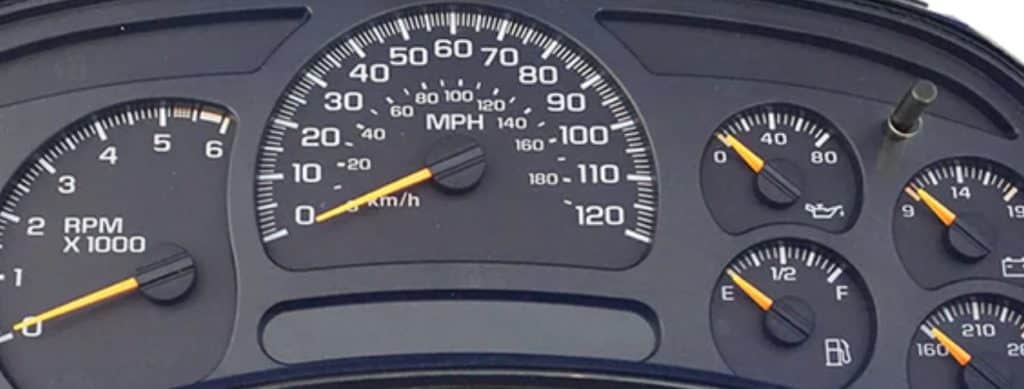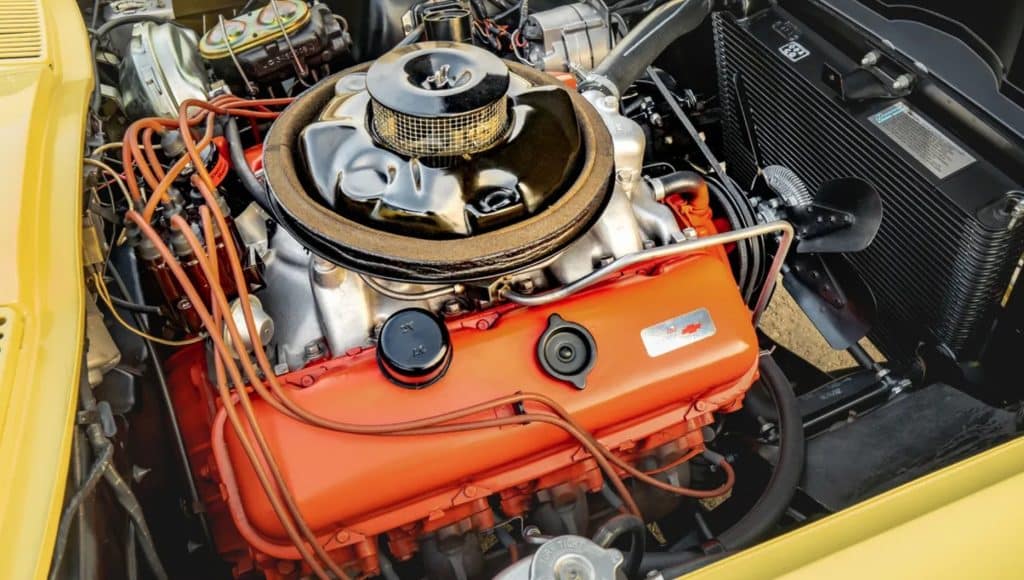Have you ever noticed your car’s RPM needle dancing up and down while you’re parked? It’s like your engine is trying to do the cha-cha without your permission. Don’t worry, you’re not alone in this automotive mystery.

Fluctuating RPMs while parked are often caused by issues like vacuum leaks, faulty sensors, or a dirty air filter. These culprits can throw off your engine’s delicate balance, making it struggle to maintain a steady idle. It’s like your car can’t decide whether to take a nap or run a marathon.
While it might seem harmless, this RPM tango could be a sign of underlying problems that need attention. Ignoring it might lead to bigger headaches down the road. So, let’s dig into why your parked car is putting on this unexpected performance and what you can do about it.
Key Takeaways
- RPM fluctuations while parked can indicate various engine issues requiring attention
- Regular maintenance and prompt addressing of symptoms can prevent more serious problems
- Diagnosing the specific cause often requires professional inspection and testing
Understanding RPM and Engine Basics
RPM and engine performance go hand in hand. Let’s dive into the nitty-gritty of what makes your car’s heart tick and why those numbers on your tachometer matter more than you might think.
Role of RPM in Engine Performance
RPM, or revolutions per minute, is like your engine’s pulse. It tells you how hard your motor’s working, even when you’re just sitting there. When you’re idling, your engine should purr along at a steady beat, usually between 600-1000 RPM.
Think of your engine as a boxer throwing punches. Each revolution is a jab, and RPM is how many jabs it’s throwing per minute. The faster it goes, the more power it’s putting out.
But here’s the kicker – your car needs different RPMs for different jobs. Cruising down the highway? You’re looking at around 2000-2500 RPM. Drag racing your neighbor’s minivan? You might be redlining at 6000+ RPM!
Components Influencing RPM
Now, let’s talk about the band members in your engine’s rock group. First up, we’ve got the cylinders – these bad boys are the core of your engine’s power. They’re like tiny boxers, punching away to keep your RPM steady.
Next, we’ve got the fuel injectors. These are the bartenders of your engine, making sure each cylinder gets just the right mix of fuel and air. If they’re not on their A-game, your RPM might start doing the cha-cha while you’re parked.
Don’t forget about the spark plugs! They’re like the drummer, keeping the beat. If they’re worn out, your engine might start to misfire, causing your RPM to bounce around like a kangaroo on a trampoline.
Lastly, there’s the idle air control valve. This little gizmo is the conductor, making sure your engine idles smoothly. If it decides to take a coffee break, your RPM might start playing jump rope while you’re sitting still.
Common Causes of RPM Fluctuations

When your car’s RPM jumps around while parked, it’s like your engine is doing the cha-cha. Several culprits could be behind this automotive dance party, ranging from vacuum issues to fuel system hiccups.
Vacuum Leaks and Their Effects
You know that satisfying slurp when you finish a milkshake? Well, your engine loves a good suck too, but vacuum leaks can throw a wrench in its rhythm. These pesky air intruders bypass your Mass Air Flow sensor, leaving your engine control unit scratching its digital head.
The result? Your engine gets less fuel than it needs, causing those RPM jitters. It’s like trying to run a marathon on an empty stomach – not gonna end well, folks.
Vacuum leaks can also lead to higher emissions. So not only is your engine unhappy, but Mother Nature’s giving you the stink eye too. Time to break out the mechanic’s stethoscope and listen for that telltale hiss!
Fuel System Foibles
Your fuel system is like the kitchen staff of a busy restaurant – when it’s not running smoothly, chaos ensues. Clogged fuel injectors are like chefs with their hands tied, unable to serve up the right amount of fuel.
A worn-out fuel pump, on the other hand, is like a lazy waiter who can’t keep up with orders. It struggles to deliver fuel consistently, causing your RPMs to yo-yo up and down.
Don’t forget about the fuel filter! A clogged one is like a bouncer being too picky at the club entrance. It restricts fuel flow, leaving your engine gasping for more. Regular maintenance can keep these fuel system foibles at bay and your engine purring like a well-fed kitten.
Ignition System Issues
Ah, the ignition system – the spark that lights your engine’s fire. When it’s misbehaving, your RPMs can go crazier than a cat on catnip. Worn spark plugs are like tired old matchsticks, struggling to ignite the fuel mixture properly.
This can lead to misfires, where cylinders decide to take an impromptu vacation. Your engine compensates by revving up, then down, then up again – it’s like a roller coaster ride you never asked for.
Faulty ignition coils can also crash the party. They’re responsible for providing that high-voltage kick to your spark plugs. When they’re on the fritz, your engine’s combustion becomes as unpredictable as a game of musical chairs.
Regular check-ups and timely replacements of these ignition components can keep your engine’s rhythm steady and your RPMs from doing the watusi while parked.
Idle Control and Airflow Factors

When your car’s RPM fluctuates while parked, it’s often due to issues with idle control and airflow. These systems work together to keep your engine running smoothly when you’re not moving.
Idle Air Control Valve Ins and Outs
The idle air control valve (IACV) is your engine’s unsung hero. It regulates airflow when your foot’s off the gas, kind of like a tiny traffic cop for air. If this valve gets clogged or starts slacking on the job, your RPMs might start doing the cha-cha while you’re parked.
Dirty or malfunctioning IACVs can cause your car to rev up and down on its own. Imagine trying to breathe through a straw filled with mud – not fun, right? That’s how your engine feels with a gunked-up IACV.
Regular maintenance can keep this little valve happy. A clean IACV means steady RPMs and a smoother idle. Your engine will thank you, and your passengers won’t feel like they’re on a rollercoaster at the stoplight.
Throttle Body and MAF Sensor Mechanics
Your throttle body and mass airflow (MAF) sensor are like the dynamic duo of airflow management. The throttle body controls how much air enters the engine, while the MAF sensor measures it.
A dirty throttle body can stick, causing erratic idling. It’s like trying to regulate your breathing through a partially blocked nose – not ideal! Cleaning your throttle body can often smooth out those RPM jitters.
The MAF sensor is your engine’s airflow psychic. If it gets dirty or fails, it might send incorrect readings to your car’s computer. This can lead to an improper air-fuel ratio, causing your RPMs to bounce around like a kid on a sugar rush.
Don’t forget about the throttle position sensor. If it’s faulty, your car might think you’re tapping the gas when you’re not. Talk about mixed signals!
Electronic and Sensor-Related Issues
Modern cars are like rolling computers, packed with sensors and electronic gizmos. When these gadgets go haywire, your RPMs can dance like they’re at a disco.
Check Engine Light: A Beacon for Troubles
You know that pesky little light on your dashboard? It’s not just there to annoy you. When your RPMs are doing the cha-cha while parked, this light might be trying to tell you something.
It’s like your car’s way of saying, “Hey buddy, we need to talk!” The check engine light can illuminate for various reasons, from minor hiccups to major meltdowns.
To decode this automotive Morse code, you’ll need an OBD-II scanner. This nifty device can read those cryptic codes your car is spitting out. Common culprits include P0171 (too lean fuel mixture) or P0300 (random misfire detected).
Solving the Sensor Puzzle
Your car’s brain, the Engine Control Unit (ECU), relies on a network of sensors to keep things running smoothly. When these sensors go wonky, it’s like trying to drive with a blindfold on.
Oxygen sensors are often the troublemakers. These little guys monitor your exhaust and help the ECU adjust the fuel mixture. If they’re on the fritz, your RPMs might fluctuate faster than gas prices.
Other sensors can join the party too. The mass airflow sensor, for instance, might be telling your ECU that you’re driving through a wind tunnel when you’re just sitting in your driveway.
Don’t forget about the idle air control valve. This gizmo regulates airflow when you’re idling. If it’s stuck, your RPMs might bounce around like a kangaroo on a pogo stick.
Troubleshooting and Maintenance Tips
Got a case of the jittery RPMs while parked? Don’t fret! Let’s roll up our sleeves and get that engine purring like a well-fed cat again.
Detecting and Fixing Common Malfunctions
First things first, check your vacuum lines. These little hoses can cause big trouble when they leak. Give ’em a once-over and replace any that look worse for wear.
Next up, let’s talk spark plugs. These tiny firemakers can make or break your idle. If they’re older than your favorite pair of jeans, it’s time for new ones.
Is your throttle body looking dirtier than a mechanic’s rag? Give it a bath with some throttle body cleaner. You’ll be amazed at how much gunk can build up in there.
Don’t forget about your fuel injectors. Clogged injectors can make your RPMs dance like they’re at a disco. A good cleaning might just be the trick to smooth sailing.
Preventative Measures and Regular Upkeep
Want to keep those RPM fluctuations at bay? Regular oil changes are your best friend. Fresh oil keeps your engine happy and reduces wear and tear.
Keep an eye on your air filter too. A clogged filter is like trying to breathe through a straw – not fun for you or your engine.
Don’t skimp on fuel quality. Your engine deserves the good stuff. Premium fuel can help prevent carbon buildup and keep your fuel system clean.
Lastly, give your EGR system some love. This emissions control wizard can cause idle issues when it gets gunked up. A clean EGR valve means better performance and fewer headaches down the road.
Frequently Asked Questions
Car RPMs bouncing around while parked can be puzzling and sometimes concerning. Let’s tackle some common questions about this automotive quirk that might have you scratching your head.
What’s with my car acting like a yo-yo with RPMs bouncing while I’m parked?
Your car’s RPM dance while parked could be due to several factors. One common culprit is a vacuum leak, which messes with the air-fuel mixture. It’s like your engine’s trying to breathe through a straw with a hole in it.
Another possibility? Your idle air control valve might be throwing a tantrum. This little gizmo controls air flow when you’re not touching the gas pedal.
Is it my car’s way of saying, ‘More A/C, please!’ when the RPM needle starts dancing every time I turn on the cooler?
Well, your car isn’t exactly begging for more A/C, but you’re onto something. When you flip on that cool air, your engine has to work a bit harder. It’s like asking your car to juggle while standing still.
This extra load can cause RPM fluctuations, especially if your idle speed is already a bit wonky. If it’s extreme, though, you might want to get your idle control system checked out.
Why does my four-wheeled buddy get all jumpy with the RPMs when I’m just chilling at a red light?
Your car’s idle behavior at a red light can reveal a lot about its health. Dirty air filters are often the culprits here. It’s like trying to breathe through a dust mask that hasn’t been changed since the ’90s.
Other possibilities include a clogged fuel injector or a misbehaving oxygen sensor. These can all mess with your engine’s air-fuel diet, causing those RPM jitters.
Tell me, is it just a quirky car thing, or should I worry when my RPMs play hopscotch while my ride’s at a standstill?
While a slight RPM variation is normal, excessive bouncing is your car’s way of waving a red flag. It could be signaling issues with spark plugs, fuel injectors, or even the throttle body.
Think of it as your car’s version of a nervous twitch. If it persists, it’s best to get it checked out before that quirk turns into a full-blown tantrum.
Why does my car think it’s in a disco, with the RPMs going up and down, while I haven’t even hit the road yet?
Your car’s impromptu disco fever might be caused by a faulty idle air control valve. This little gadget is supposed to keep your engine running smoothly when you’re not moving.
When it goes haywire, it’s like having a DJ that can’t keep a steady beat. Other potential party crashers include vacuum leaks or a dirty throttle body.
At idle, my car’s RPMs fluctuate like it’s digesting a bad taco. Normal or a sign to visit the garage?
If your car’s idle is more erratic than a caffeine addict on their fifth espresso, it’s time to pay attention. While minor fluctuations are normal, wild swings could indicate problems with your engine’s combustion.
It might be time for a tune-up or a thorough check of your fuel system. Remember, it’s always better to catch these issues early before they turn into a full-blown automotive indigestion.
